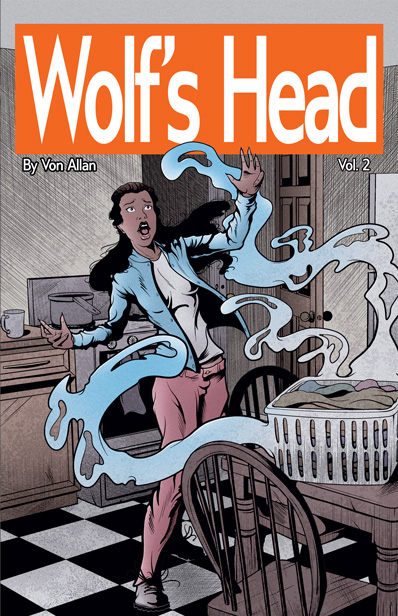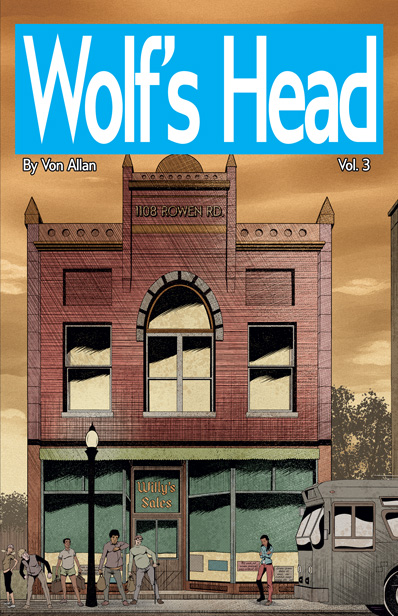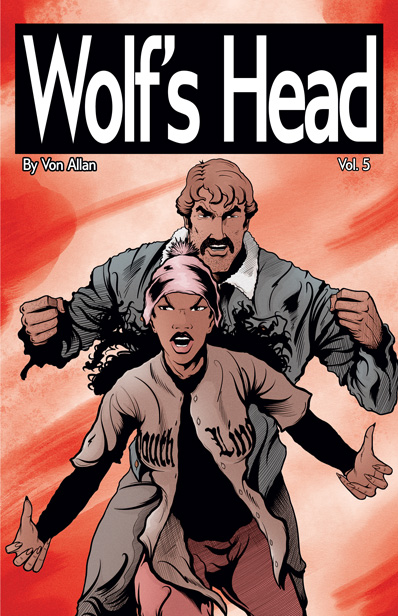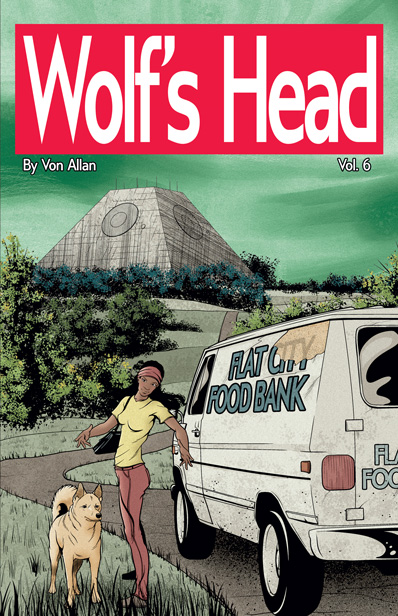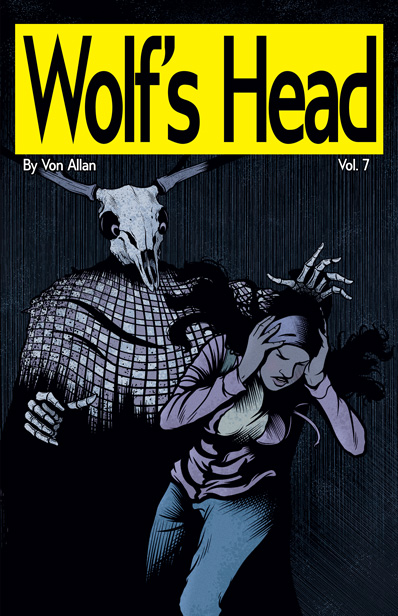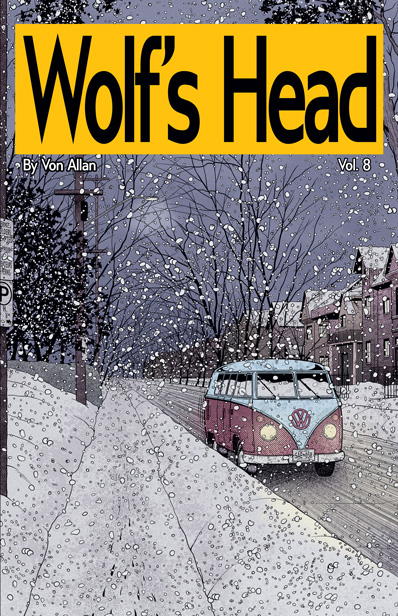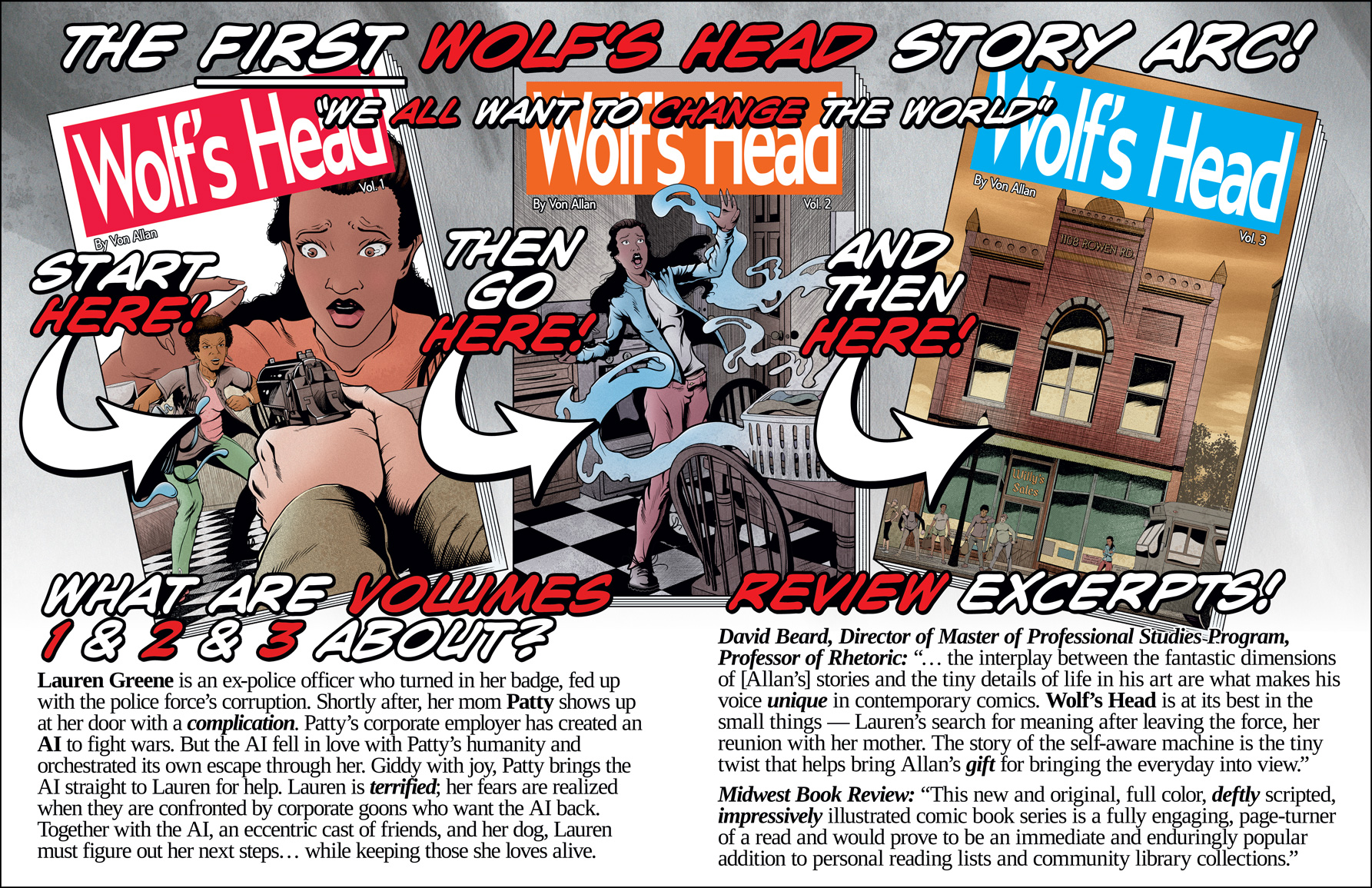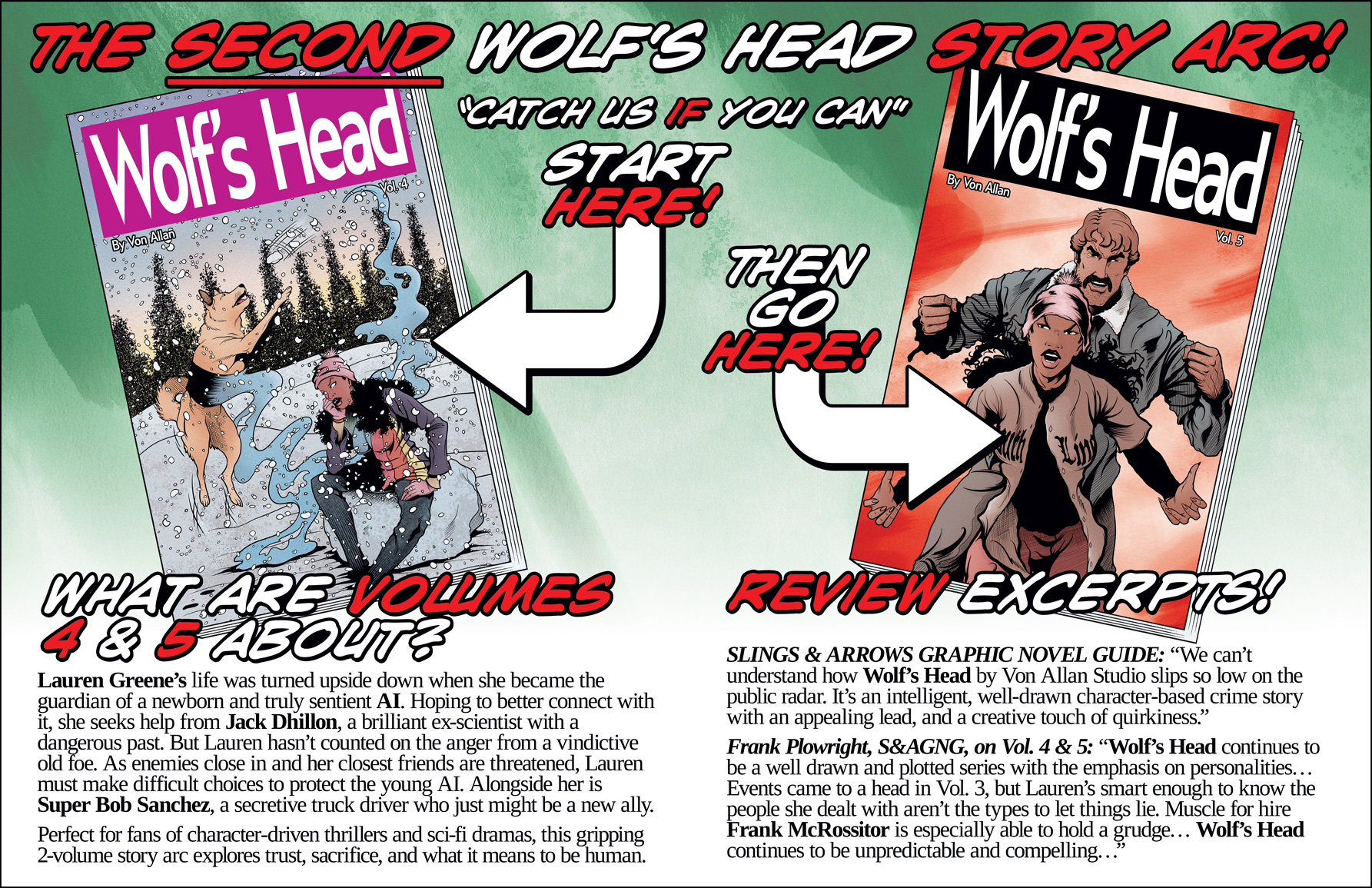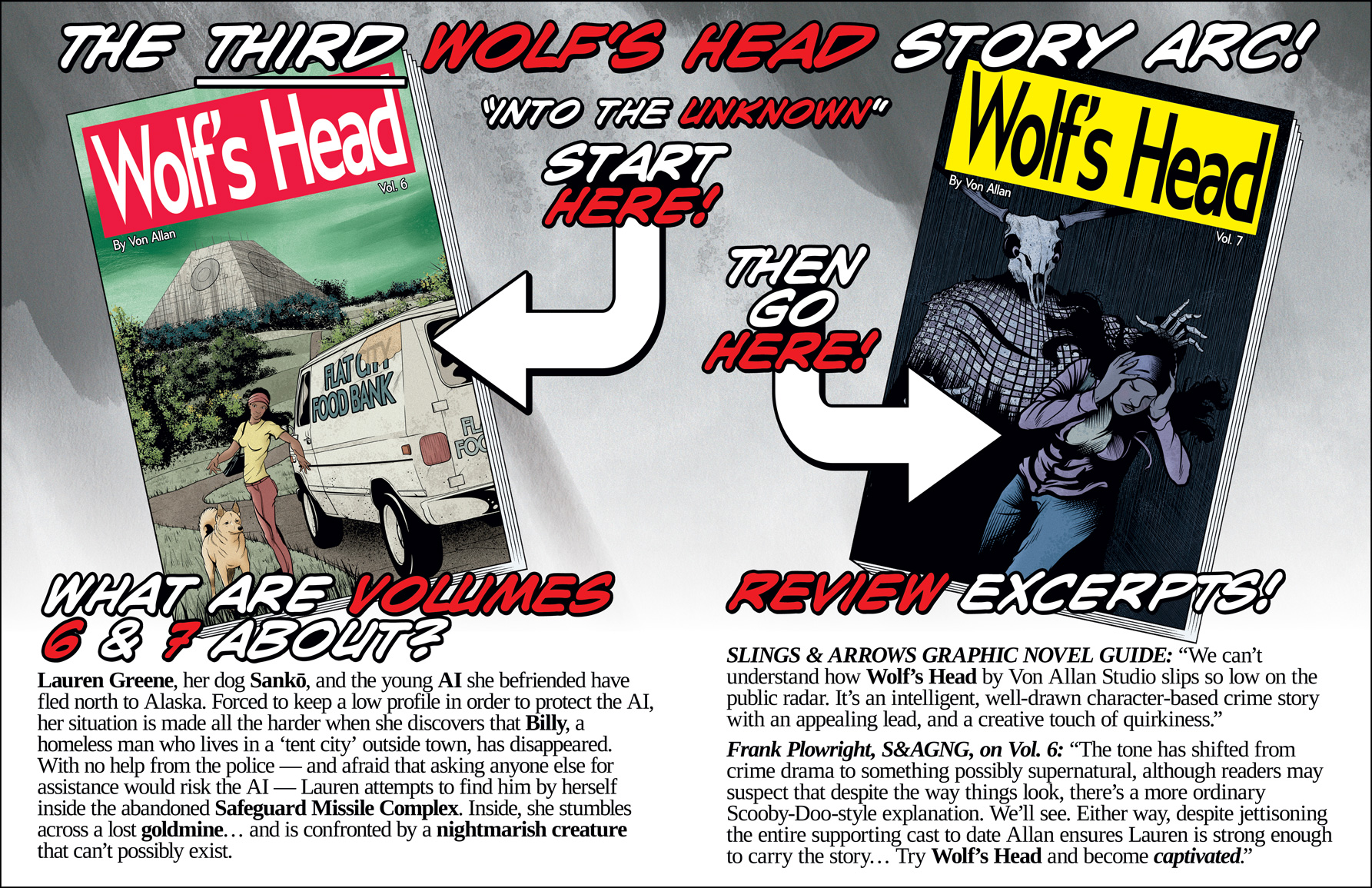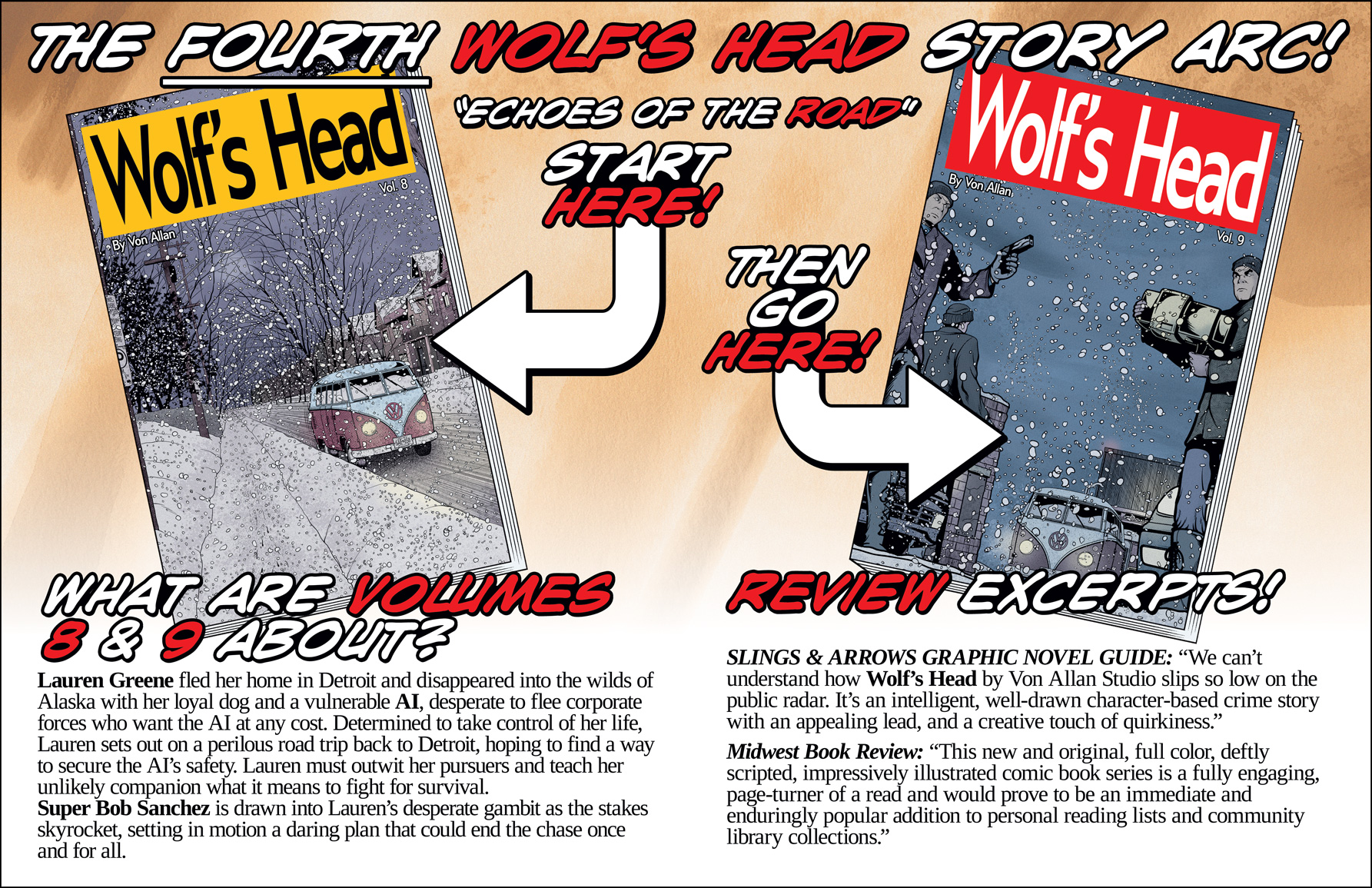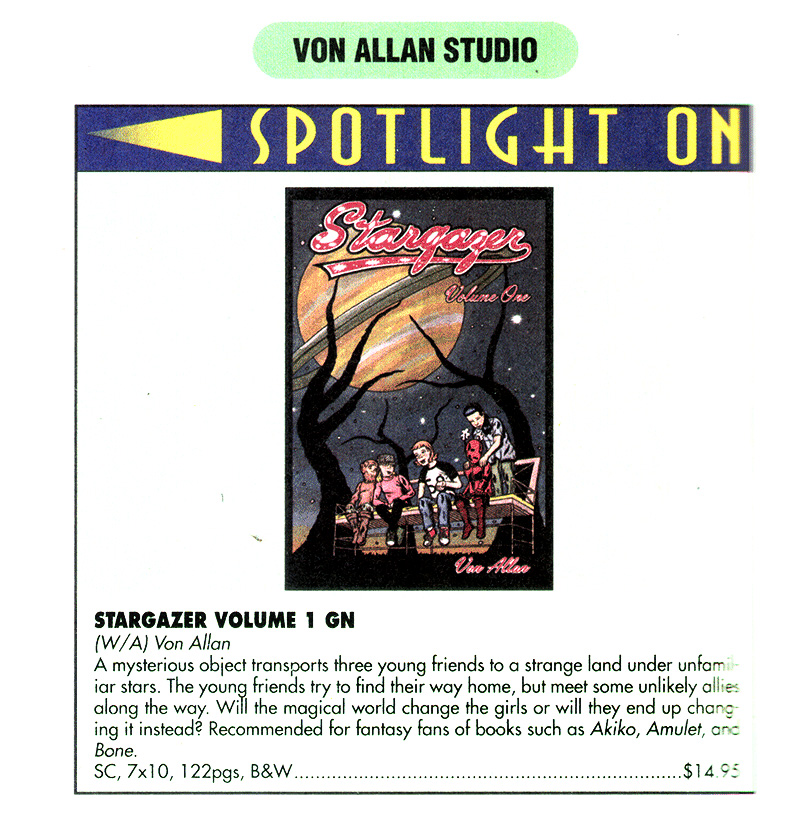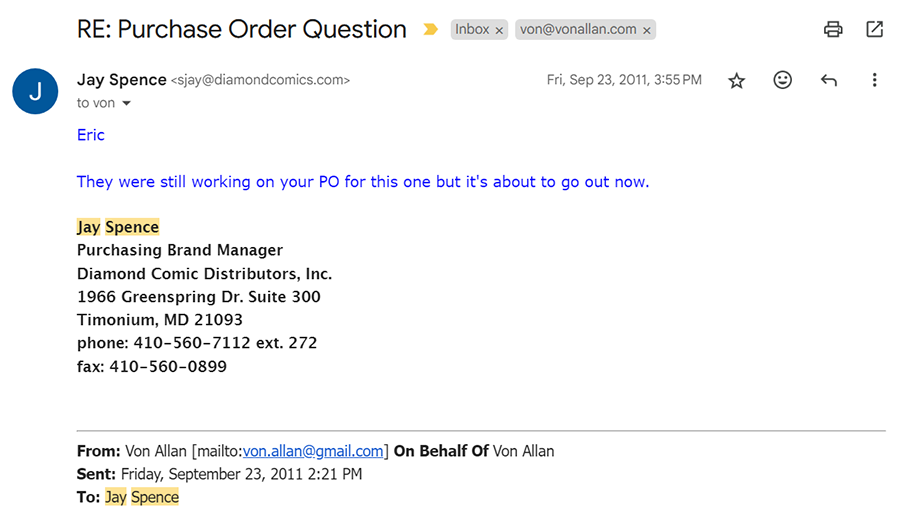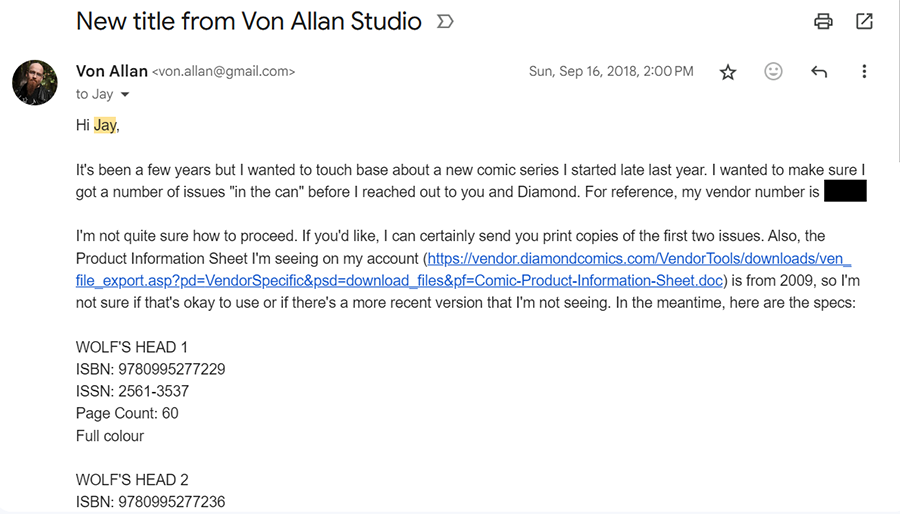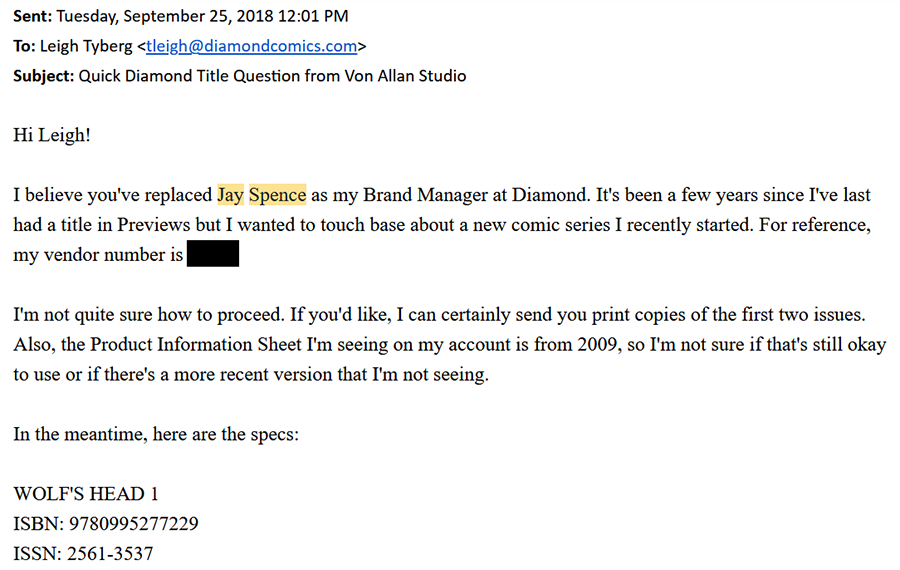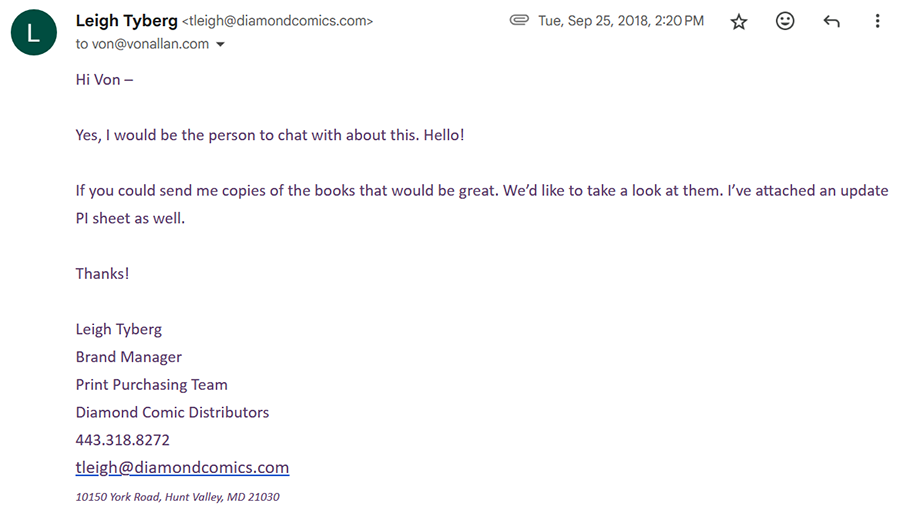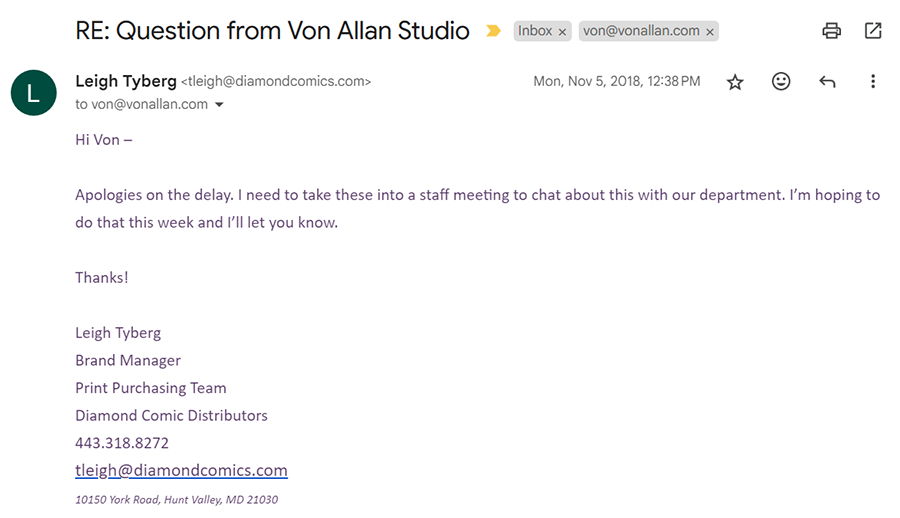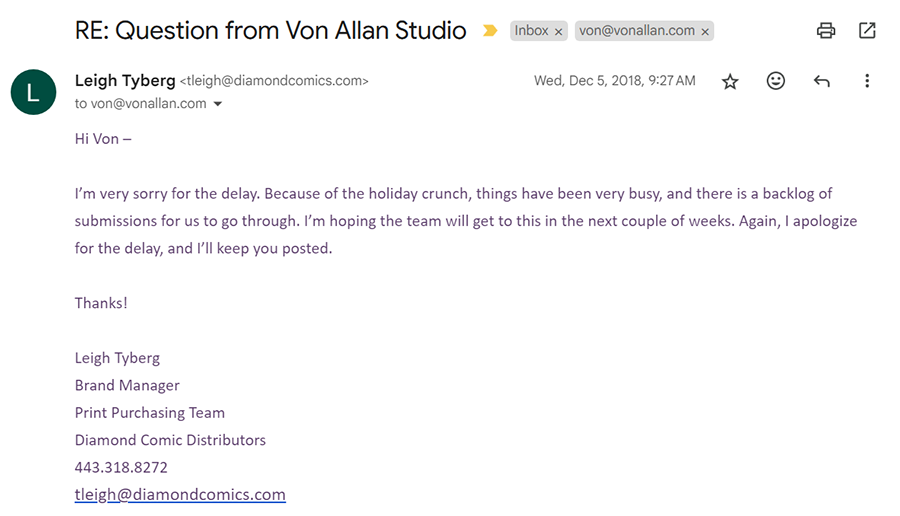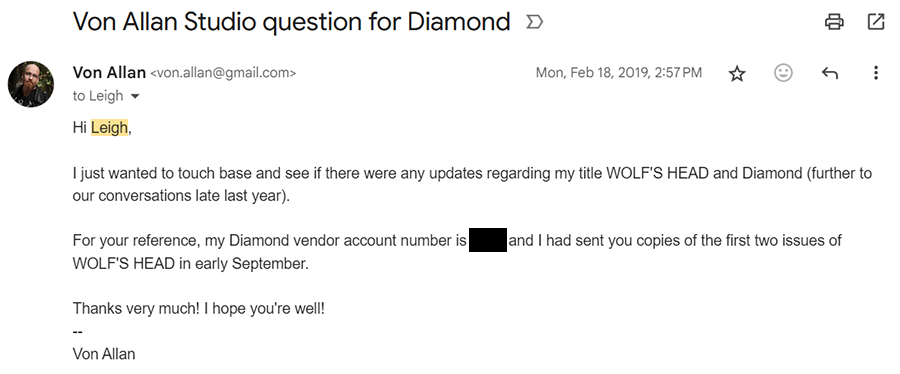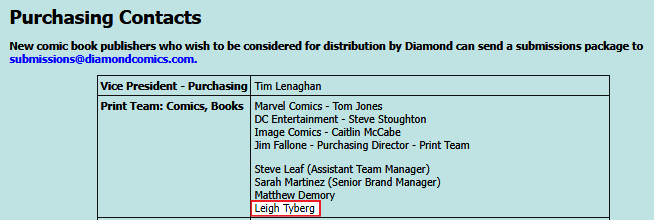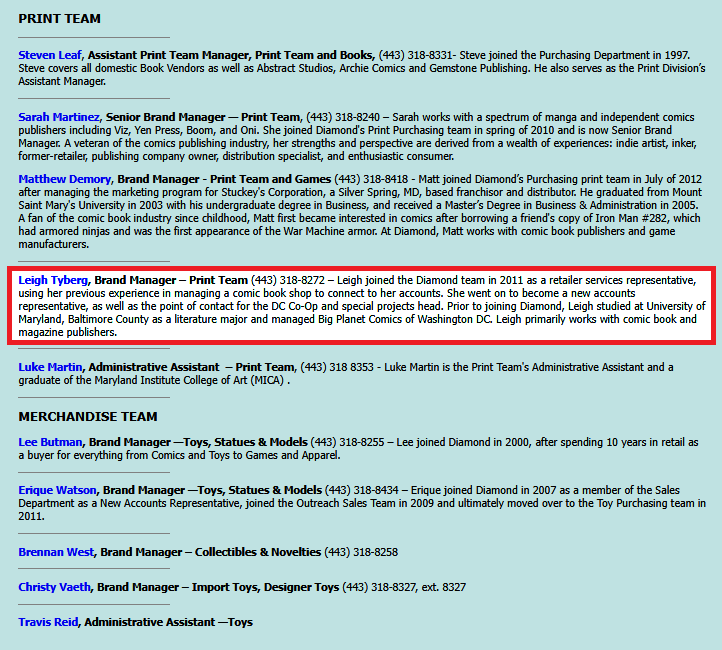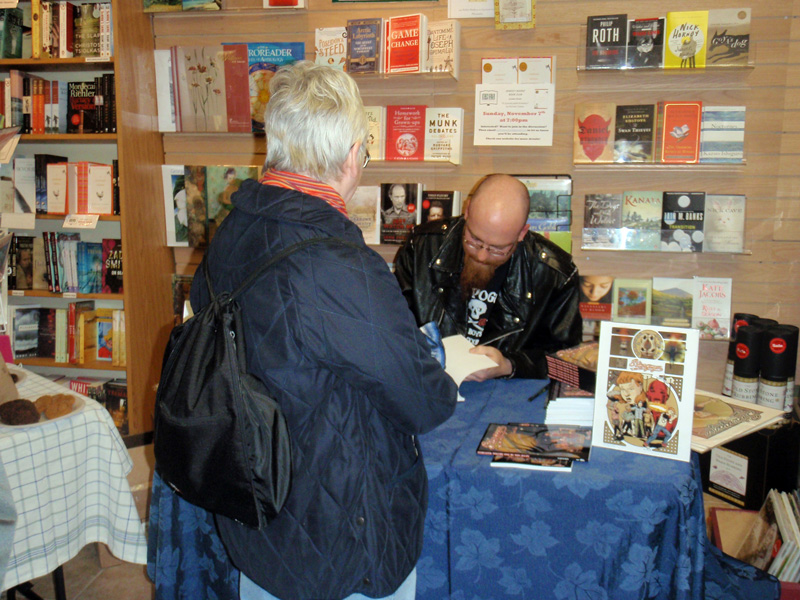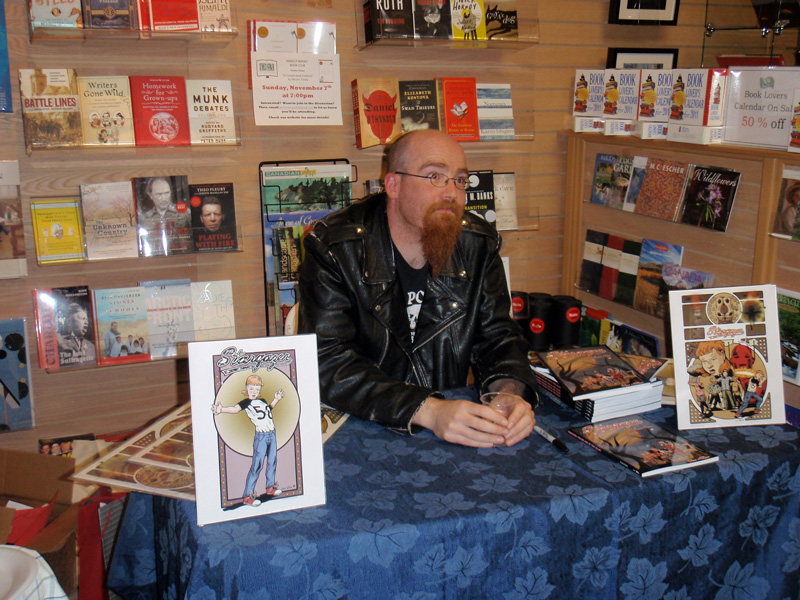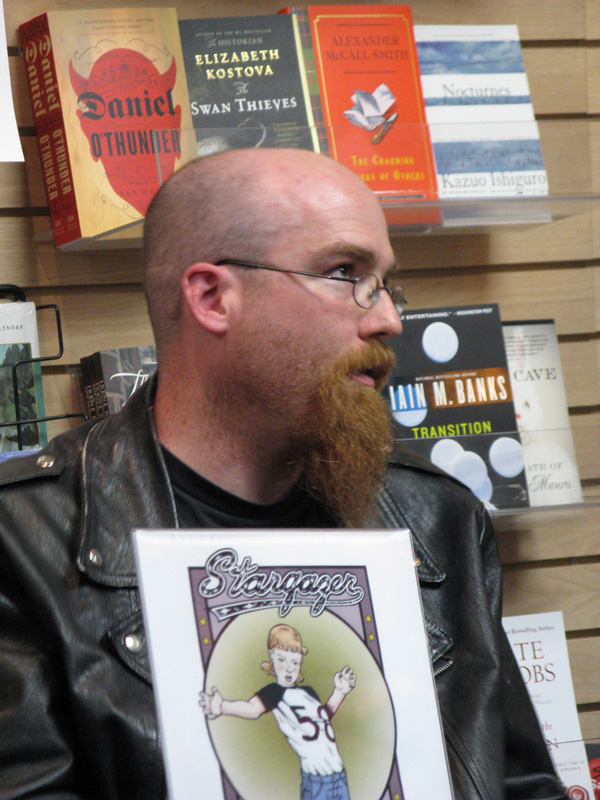Von Allan Graphic Novels for the Holiday Season
With the holidays fast approaching, I thought I should do a quick post regarding my comics and graphic novels. If you are looking for a gift for friends and family or even for yourself, my comics and graphic novels do make lovely treats! For those who are relatively new to my work, the following serves as a quick breakdown of my work.
Key Information
As most people reading this know, my main longform comics project is WOLF’S HEAD, an action-adventure comic book series with a dash of sci-fi, crime, and mystery thrown in for good measure.
WOLF’S HEAD is certainly not alone, though, and both my earlier black and white two volume graphic novel series STARGAZER as well as the hardcover short story collection LOVE, LAUGHTER, AND LOSS: A COMICS COLLECTION.
Buying Von Allan’s Graphic Novels
All of my graphic novels are widely available all over the world. That said, I am a small press creator so book shops and comic book stores often don’t stock my work in depth. I wish that wasn’t the case, but it is.1 In other words, you are almost certainly going to have to ask your local retailer for a copy. If they don’t currently have a copy in, then it’s super easy for them to order a copy for you. It really really is.
Fortunately
for a creator like me, the world of online retail has dramatically
changed the distribution side of things since the early days of the
Direct
Market. Back
then a creator and/or publisher really needed comic book shops
onside to reach an audience. Nowadays, with the rise of the internet,
everything has changed.
There are so many online options that I can’t
possibly list them all, but here are a few to get started:
In the United States: Amazon, Barnes & Noble, Books-A-Million, Powell’s Books, Bookshop.org, and so on!
In England, Ireland, Scotland, and Wales: Amazon.co.uk, Waterstones, The Portobello Bookshop, and so on!
In Asia: Amazon.co.jp, DangDang.com, and so! American Book Center
Online: AbeBooks, Alibris, Biblio — While many think that these stores only sell used books, that is actually not true. Each of these platforms are actually book marketplaces, so you can find stores that carry new books as well as used.
In Canada: For Canadians, it’s a little trickier. Currently I’m having a great deal of difficulty with Amazon.ca as well as Indigo. The former is apparently refusing to regularly stock my work, which is not the case for Amazon.com or Amazon.co.uk. I don’t understand why this is, but I know that it is. Indigo is stocking some of my work, but only the first four volumes of WOLF’S HEAD. I have no idea why this is, either, but this is fairly typical for an independent artist like me.
So, for Canadians, what to do? The best option is to order through an independent Canadian bookstore. That way you can order Volume 8 and support an indy bookshop at the same time. Most of these indy stores use a Point-of-Sale system called BookManager. That program also doubles as a quasi “Books in Print” database. In other words, they will be able to order it for you very easily. I realize that this is not ideal, but it is what it is right now. Hopefully this will change in the not too distant future.
More About Love, Laughter, and Loss
This is a premium hardcover edition with beautiful printing, collecting nine of my short stories (including the currently out of print WIZARDS FOR HIRE — CHEAP! Collection that you can read online for free here). Please visit https://www.vonallan.com/2021/05/Love-Laughter-Loss-Comics-Collection-by-Von-Allan.html for more information about the book!
More About Stargazer
STARGAZER is a two volume all-ages graphic novel series featuring three young girls who find themselves transported to a completely different planet! There’s a dedicated website at https://stargazer.vonallan.com/. And I also received my favourite piece of fan mail ever for STARGAZER. This from a young girl in Florida who loved the series and wanted to tell me!
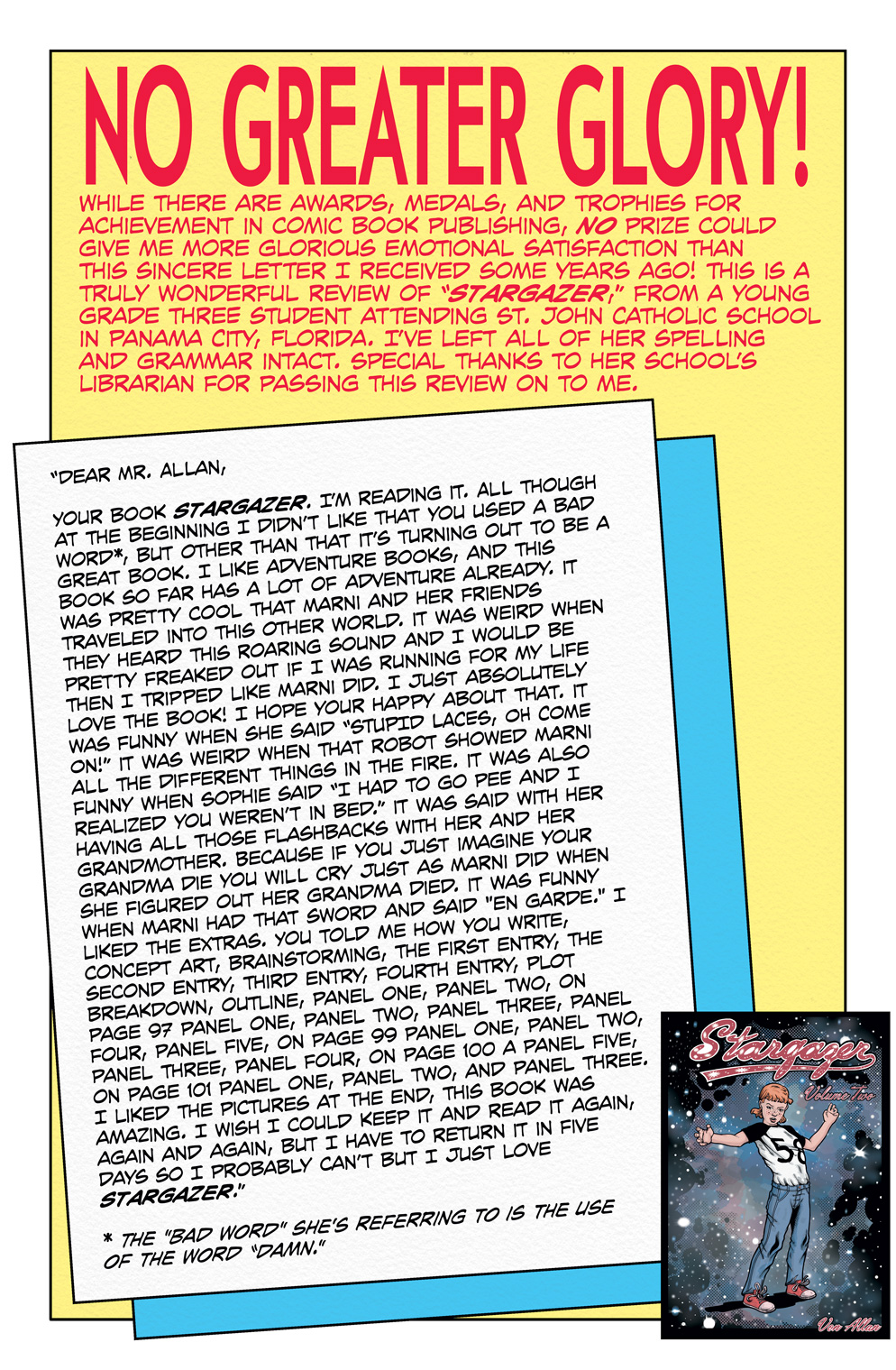
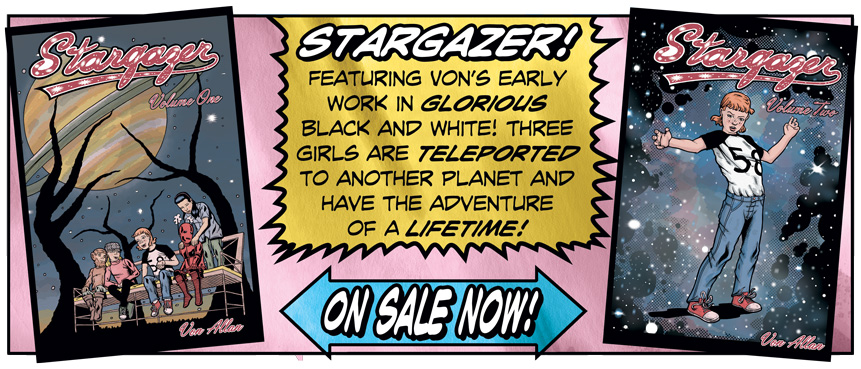
More about Wolf’s Head
WHICH VOLUME DO I START WITH?
Since WOLF’S HEAD is a multi-volume graphic novel, it can be a little daunting to start right from the beginning with volume 1. Fortunately, you don’t have to do that if you don’t want to! I strive to ensure that my work is approachable no matter what volume someone starts reading at.
STORY ARCS
Even better, the series is organized into so-called “story arcs” to make this even easier. The graphics below explain that clearly:
In other words, you can start reading at any volume or, if you really want to start at the beginning of a new story arc, then volumes 1, 4, 6, or 8 is the way to go! See? Easy!
REVIEWS!
The Slings & Arrows Graphic Novel Guide noted the following on their Facebook page about the series, “We can’t understand how Wolf’s Head by Von Allan Studio slips so low on the public radar. It’s an intelligent, well-drawn character-based crime story with an appealing lead, and a creative touch of quirkiness. Six volumes out to date revealing the strange path Lauren Greene’s life has taken since quitting the police.”
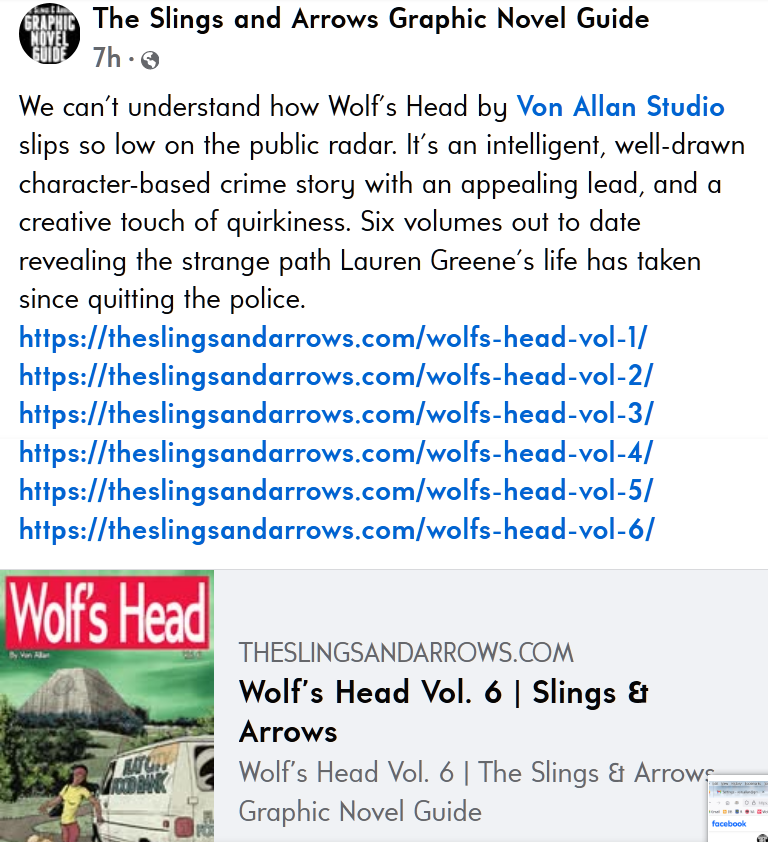
And Frank Plowright, writing on the same website, noted the following about both Volume 6 and the series overall: “Try Wolf’s Head and become captivated.”
That is one of the best things anyone has ever said about my work!
WHAT IF YOU’RE ALREADY A REGULAR READER?
If you’re reading the series in digital format, either in the original ComiXology/Kindle versions or now over on the Internet Archive, and you would like to support me, please do consider purchasing physical copies. That really does help!
The other thing you can do is simple: tell people about the series! Share the love! Do you know someone who likes comics but has never heard of me or my work? TELL them!
ANYTHING ELSE?
Please do consider reviewing any of the volumes you’ve bought. You usually can do that on any online platform (like Amazon), but there are many review sites out there that you can also post reviews to. Sites like GoodReads definitely help. Even a short review, a sentence or two, helps!
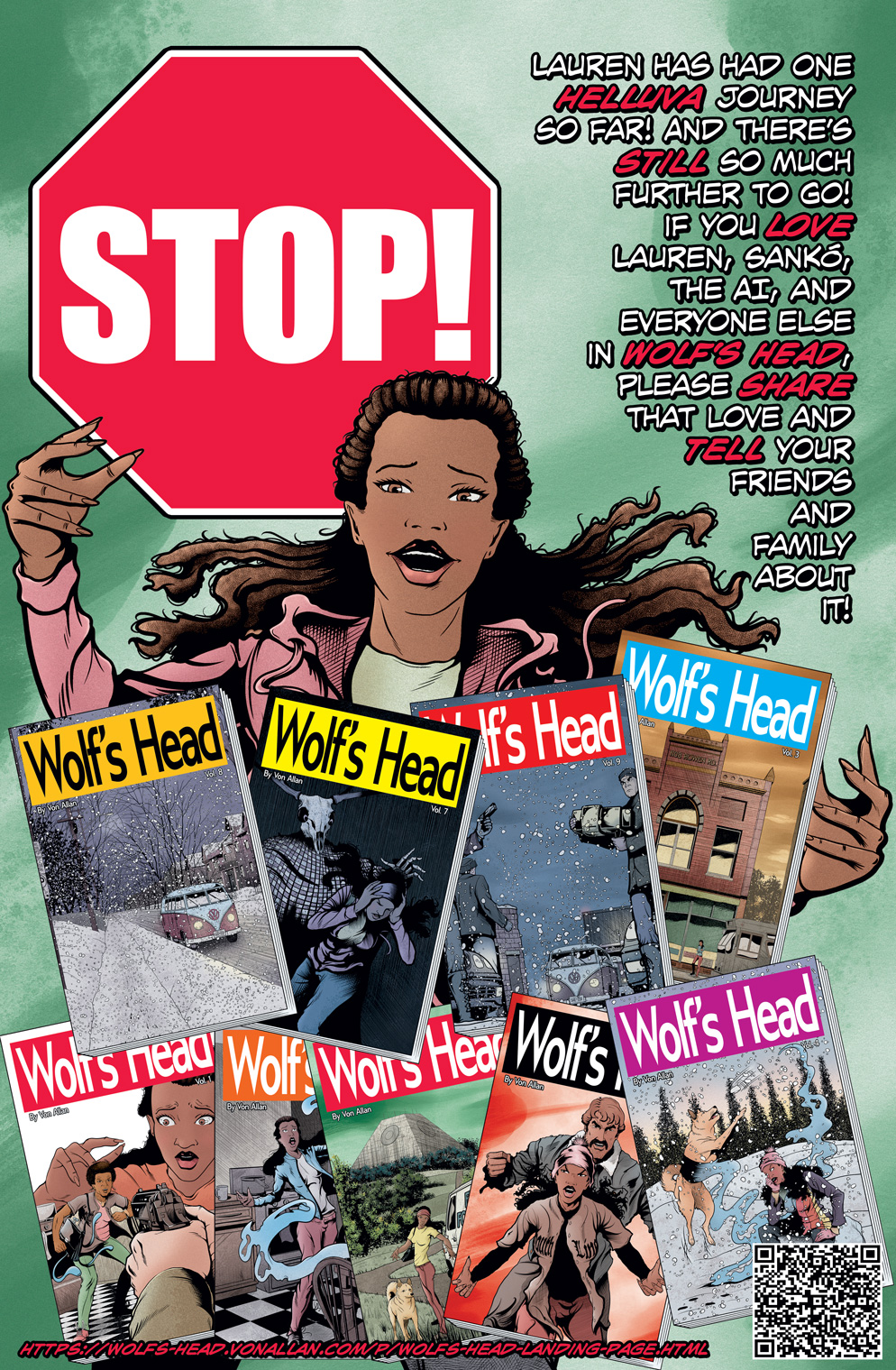
Lastly
For those who have read and loved my work as well as those who are trying my work for the first time, thank you!
All my best to you and yours for the holidays!
1 For those wondering, the comic book store side of things has been especially difficult. For some thoughts on why, please read this: https://www.vonallan.com/2025/01/Diamond-Comic-Distributors-Wolfs-Head-and-Me.html. This situation was made worse by Diamond’s bankruptcy and the ongoing changes to the so-called “Direct Market” (the comic book store “channel” when it comes to distribution). It doesn’t help that so much of what counts for comics “journalism” is pretty weak, as recently detailed on the Four Color Sinners blog. In the interest of full disclosure, the blog’s author Mr. Four Color Sinners himself shares excerpts from a conversation we had and then discusses it. That lead to a fairly robust exchange in the comments that are worth a read. Hell, even I pop up there, too!



